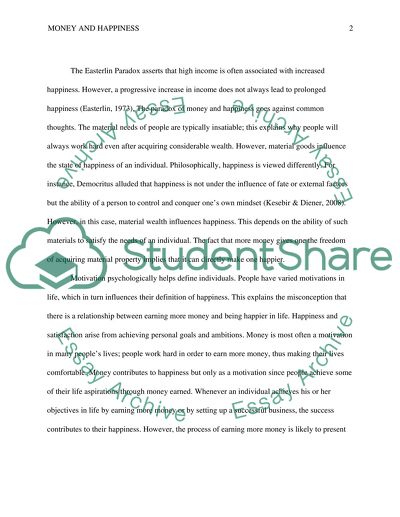Cite this document
(“Money and Happiness Essay Example | Topics and Well Written Essays - 1500 words”, n.d.)
Retrieved from https://studentshare.org/philosophy/1647244-money-and-happiness
Retrieved from https://studentshare.org/philosophy/1647244-money-and-happiness
(Money and Happiness Essay Example | Topics and Well Written Essays - 1500 Words)
https://studentshare.org/philosophy/1647244-money-and-happiness.
https://studentshare.org/philosophy/1647244-money-and-happiness.
“Money and Happiness Essay Example | Topics and Well Written Essays - 1500 Words”, n.d. https://studentshare.org/philosophy/1647244-money-and-happiness.


